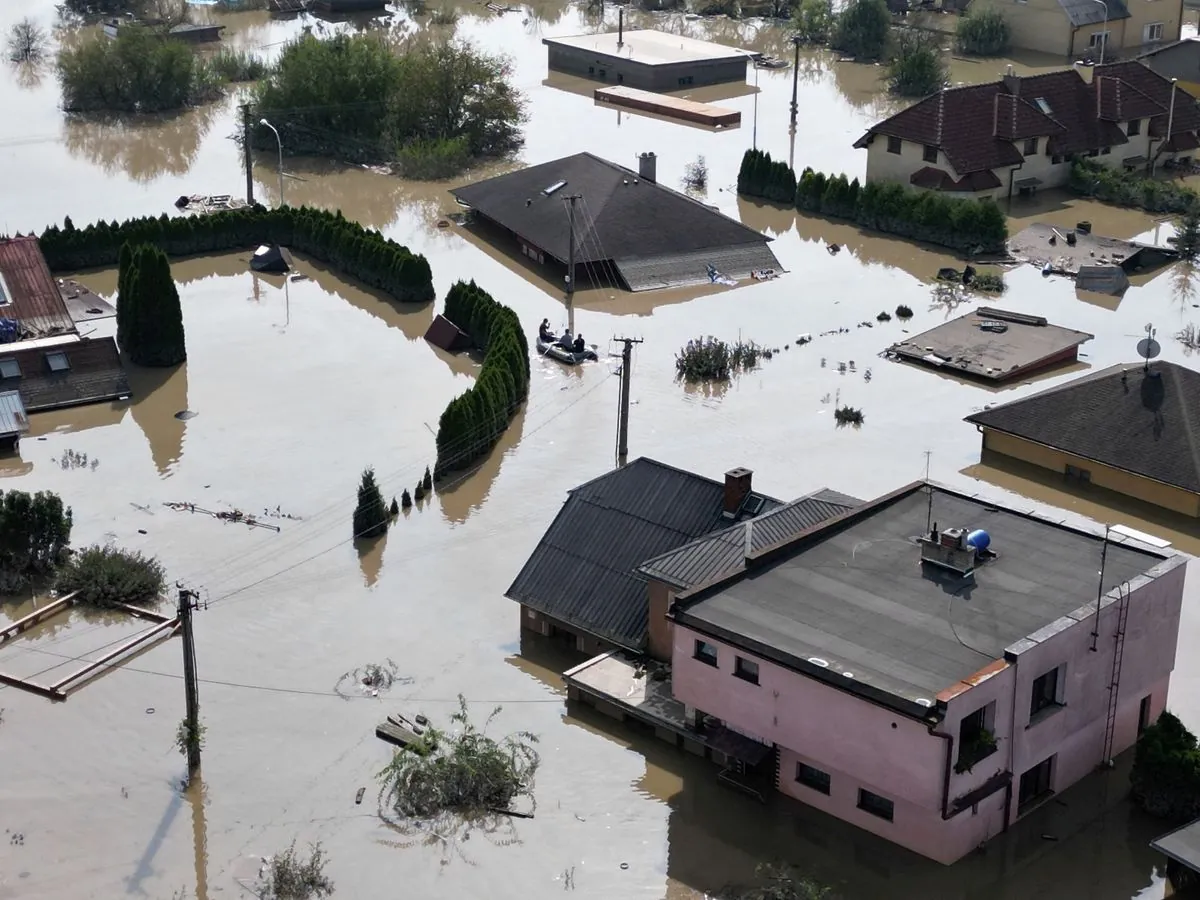Czech Parliament Boosts 2024 Budget for Flood Relief Amid EU Deficit Goal
Czech lawmakers unanimously approve a 30 billion crown increase in the 2024 budget deficit for flood aid. The government aims to meet EU deficit targets while addressing recent devastating floods.

The Czech Republic's lower house has unanimously approved an amendment to increase the 2024 budget deficit target to 282 billion crowns ($12.34 billion). This decision comes in response to the need for flood relief following severe rainfall in September 2024, which caused significant damage to towns along the Polish border.
The budget amendment, passed on October 1, 2024, allocates an additional 30 billion crowns for flood aid. This increase from the original target of 252 billion crowns demonstrates the government's commitment to addressing the aftermath of what has been described as the worst flooding in central Europe in at least two decades.
Prime Minister Petr Fiala's centre-right administration is taking a proactive approach to disaster relief while maintaining fiscal responsibility. The government plans to provide an additional 10 billion crowns for flood damage in the 2025 budget, which is set at 241 billion crowns.

Despite these necessary expenditures, the Czech government remains focused on meeting European Union fiscal guidelines. The administration aims to bring the country's overall fiscal deficit, which includes local governments and other institutions, below the EU's ceiling of 3% of gross domestic product (GDP) in 2024. This would mark a significant achievement, as it would be the first time the Czech Republic has met this goal since 2019, when the budget was in surplus.
The recent floods have highlighted the vulnerability of the Czech Republic to natural disasters. As a landlocked country bordered by Germany, Austria, Slovakia, and Poland, the Czech Republic has experienced several major floods in recent history, including significant events in 2002 and 2013. The Vltava, the country's longest river, often plays a central role in these flooding incidents.
While addressing immediate challenges, the Czech Republic continues to maintain its position as one of the most stable economies in Central Europe. With a population of approximately 10.7 million people, the country boasts one of the lowest unemployment rates in the EU and a highly developed industrial sector, particularly in automotive and engineering.
The Czech crown (koruna), the national currency since 1993, currently trades at about 22.85 to the US dollar. This economic stability has been crucial in allowing the government to respond effectively to crises while working towards EU fiscal targets.
As a member of both the EU (since 2004) and NATO (since 1999), the Czech Republic balances its national interests with international commitments. The country's rich history, dating back to the 6th century, is reflected in its 14 UNESCO World Heritage Sites and cultural contributions, including renowned authors like Franz Kafka and Milan Kundera.
"This budget amendment is a necessary step to support our citizens affected by the recent floods. We remain committed to responsible fiscal management while addressing urgent national needs."
The Czech Republic's response to the recent flooding demonstrates its ability to adapt to challenges while maintaining its economic goals. As the country works to rebuild affected areas, it continues to showcase its resilience and commitment to both its citizens and international obligations.


































